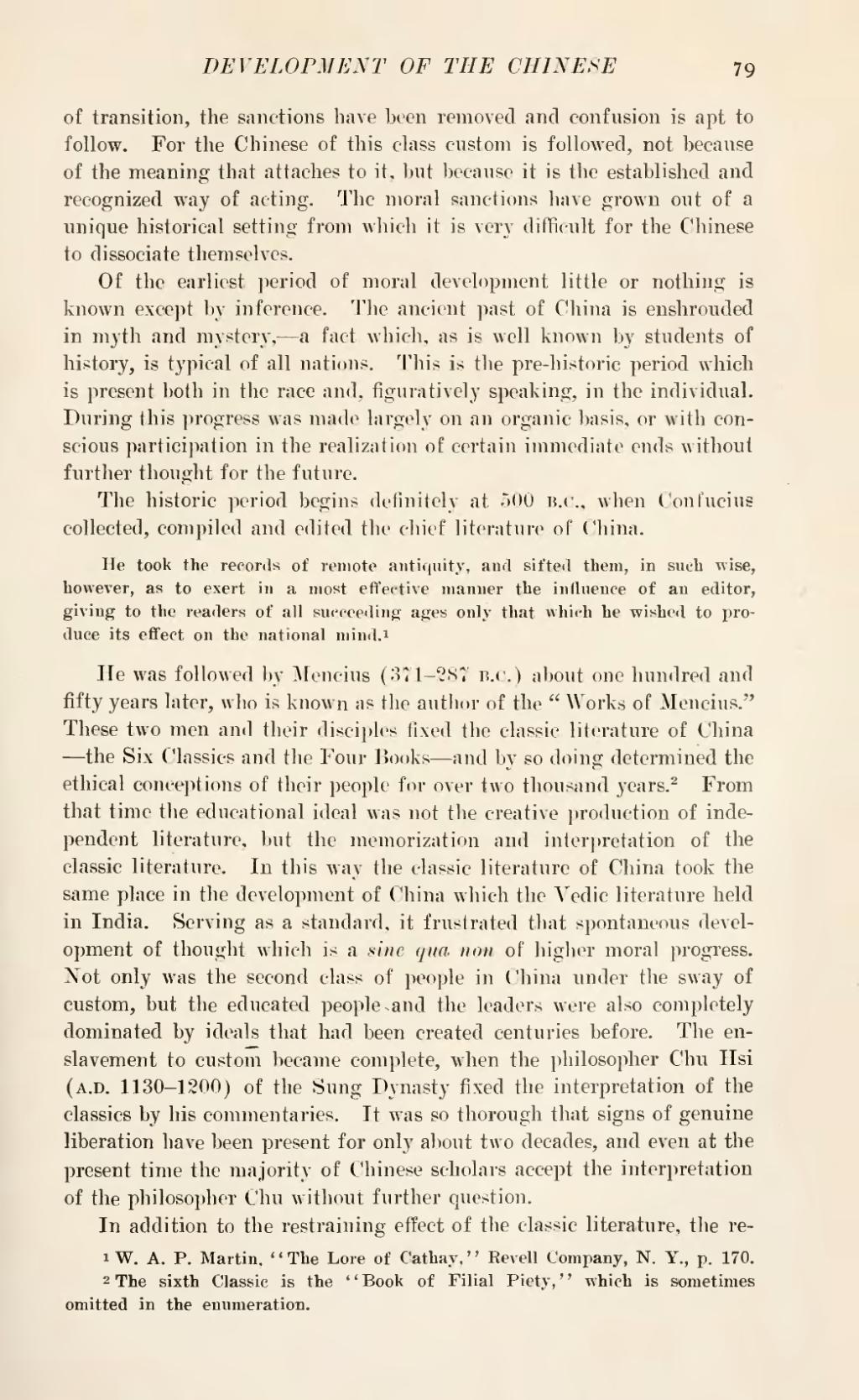of transition, the sanctions have been removed and confusion is apt to follow. For the Chinese of this class custom is followed, not because of the meaning that attaches to it, but because it is the established and recognized way of acting. The moral sanctions have grown out of a unique historical setting from which it is very difficult for the Chinese to dissociate themselves.
Of the earliest period of moral development little or nothing is known except by inference. The ancient past of China is enshrouded in myth and mystery,—a fact which, as is well known by students of history, is typical of all nations. This is the pre-historic period which is present both in the race and, figuratively speaking, in the individual. During this progress was made largely on an organic basis, or with conscious participation in the realization of certain immediate ends without further thought for the future.
The historic period begins definitely at 500 B.C., when Confucius collected, compiled and edited the chief literature of China.
He took the records of remote antiquity, and sifted them, in such wise, however, as to exert in a most effective manner the influence of an editor, giving to the readers of all succeeding ages only that which he wished to produce its effect on the national mind.[1]
He was followed by Mencius (371-287 B.C.) about one hundred and fifty years later, who is known as the author of the "Works of Mencius." These two men and their disciples fixed the classic literature of China—the Six Classics and the Four Books—and by so doing determined the ethical conceptions of their people for over two thousand years.[2] From that time the educational ideal was not the creative production of independent literature, but the memorization and interpretation of the classic literature. In this way the classic literature of China took the same place in the development of China which the Vedic literature held in India. Serving as a standard, it frustrated that spontaneous development of thought which is a sine qua non of higher moral progress. Not only was the second class of people in China under the sway of custom, but the educated people and the leaders were also completely dominated by ideals that had been created centuries before. The enslavement to custom became complete, when the philosopher Chu Hsi (A.D. 1130-1200) of the Sung Dynasty fixed the interpretation of the classics by his commentaries. It was so thorough that signs of genuine liberation have been present for only about two decades, and even at the present time the majority of Chinese scholars accept the interpretation of the philosopher Chu without further question.
In addition to the restraining effect of the classic literature, the re-

